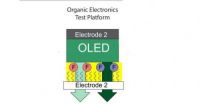(Press-News.org) Cancer researchers have discovered a new 'dustman' role for a molecule that helps a drug kill cancer cells according to a study*, published in the journal Proceedings of the National Academy of Sciences (PNAS), today (Monday).
The new findings point to a possible test that could identify patients who would be most responsive to a new class of cancer drugs and also those who might develop resistance, as well as suggesting new approaches to discovering more effective drugs.
The study, by Cancer Research UK-funded scientists at The Institute of Cancer Research, London, shows that a molecule – known as 'Cullin-5' (CUL5) – behaves like a combined cleaner and dustman: sweeping up the proteins that tell cancer cells to divide continuously and consigning them to the cellular 'dustbin' for disposal.
Their study shows that CUL5 works in opposition to another important molecule called HSP90 – one of the guardians of a cell's dividing machinery – which scientists are already trying to block with drugs to stop cancer cells dividing.
Scientists found that when cancer cells are treated with drugs that block HSP90, the cleaning protein (CUL5) immediately stepped in to 'bin' the proteins that were telling the cancer cell to keep dividing.
CUL5 also helps to pull the 'dividing-signal' proteins away from the protective shelter of HSP90, and labels them with a tag that sends them straight to the cellular dustbin – effectively stopping cancer in its tracks.
Based on their findings, the researchers think that some patients may be resistant to the HSP90-blocking drugs if their cancer cells have lower amounts of CUL5.
Conversely, the drugs may work better in patients with higher CUL5 levels.
Professor Paul Workman, study lead, deputy chief executive of The Institute of Cancer Research, London and Cancer Research UK life fellow, said: "We've known for some time that drugs that block HSP90 have great potential as treatments for cancers such as breast, bowel, lung and skin, and we had an initial clue that the protein CUL5 may be involved in some way in how these drugs work.
"Our new research shows that CUL5 is not only vital in the response of cancer cells to HSP90 inhibitors but also reveals surprising insights into precisely how it works by acting at several different levels.
"What also surprised us was that CUL5 gets rid of many more of the cancer-causing proteins than we'd previously imagined and that it's effective across several types of tumour. This suggests that a test for CUL5 in patients could help us tell whether they might respond to HSP90-blocking drugs, as well as pointing to new targets to develop more effective drugs."
Workman and his team are responsible for the discovery of one of the world-leading HSP90 inhibitor drugs, known as AUY922, which is being tested in large-scale trials in patients with drug-resistant breast and lung cancer.
Professor Nic Jones, Cancer Research UK's chief scientist, said: "There's still a lot we need to find out about HSP90, CUL5 and the other molecules involved in controlling how a cell divides, but studies like this make that picture clearer and give scientists potential new avenues to investigate.
"As we find out more about the molecules that cause cancer cells to keep dividing, it will help doctors to better tailor treatments for patients."
INFORMATION:
For media enquiries please contact Flora Malein on 020 3469 6189 or, out-of-hours, the duty press officer on 07050 264 059.
Notes to Editors:
*Samant, RS et al. The E3 ubiquitin ligase Cullin-5 modulates multiple molecular and cellular responses to HSP90 inhibition in human cancer cells (2014) Proceedings of the National Academy of Sciences. doi:10.1073/pnas.1322412111
The Institute of Cancer Research, London, is one of the world's most influential cancer research institutes.
Scientists and clinicians at The Institute of Cancer Research (ICR) are working every day to make a real impact on cancer patients' lives. Through its unique partnership with The Royal Marsden Hospital and 'bench-to-bedside' approach, the ICR is able to create and deliver results in a way that other institutions cannot. Together the two organisations are rated in the top four cancer centres globally.
The ICR has an outstanding record of achievement dating back more than 100 years. It provided the first convincing evidence that DNA damage is the basic cause of cancer, laying the foundation for the now universally accepted idea that cancer is a genetic disease. Today it leads the world at isolating cancer-related genes and discovering new targeted drugs for personalised cancer treatment.
As a college of the University of London, the ICR provides postgraduate higher education of international distinction. It has charitable status and relies on support from partner organisations, charities and the general public.
The ICR's mission is to make the discoveries that defeat cancer. For more information visit http://www.icr.ac.uk
About Cancer Research UK
Cancer Research UK is the world's leading cancer charity dedicated to saving lives through research.
Cancer Research UK's pioneering work into the prevention, diagnosis and treatment of cancer has helped save millions of lives.
Cancer Research UK receives no government funding for its life-saving research. Every step it makes towards beating cancer relies on every pound donated.
Cancer Research UK has been at the heart of the progress that has already seen survival rates in the UK double in the last forty years.
Cancer Research UK supports research into all aspects of cancer through the work of over 4,000 scientists, doctors and nurses.
Together with its partners and supporters, Cancer Research UK's vision is to bring forward the day when all cancers are cured.
For further information about Cancer Research UK's work or to find out how to support the charity, please call 0300 123 1022 or visit http://www.cancerresearchuk.org. Follow us on Twitter and Facebook.
'Dustman' protein helps bin cancer cells
The molecule known as 'Cullin-5' behaves like a combined cleaner and dustman sweeping up proteins that tell cancer cells to divide continuously
2014-04-21
ELSE PRESS RELEASES FROM THIS DATE:
Scientists successfully use krypton to accurately date ancient Antarctic ice
2014-04-21
CORVALLIS, Ore. – A team of scientists has successfully identified the age of 120,000-year-old Antarctic ice using radiometric krypton dating – a new technique that may allow them to locate and date ice that is more than a million years old.
The ability to discover ancient ice is critical, the researchers say, because it will allow them to reconstruct the climate much farther back into Earth's history and potentially understand the mechanisms that have triggered the planet to shift into and out of ice ages.
Results of the discovery are being published this week in the ...
Fast, simple-to-use assay reveals the 'family tree' of cancer metastases
2014-04-21
The process of metastasis – a tumor's ability to spread to other parts of the body – is still poorly understood. It is not easy to determine whether metastasis began early or late in the development of the primary tumor or whether individual metastatic sites were seeded directly from the original tumor or from an intermediate site. Now a research team has developed a simple assay that can reveal the evolutionary relationships among various tumor sites within a patient, information that may someday help with treatment planning.
"If we could build a 'family tree' of all ...
Scientists find key steps linking dietary fats and colon cancer tumor growth
2014-04-21
Scientists have shown new genetic evidence that could strengthen the link between the role of dietary fats with colon cancer progression.
The study, led by Arizona State University researcher and physician Dr. Raymond DuBois, M.D., Ph.D., has identified a molecular culprit, called peroxisome proliferator-activated receptor delta (PPAR delta), which, when deleted in a mouse model of colon cancer, stopped key steps required for the initiation and progression of tumor growth.
"This study has shown without a doubt there is a new function for a key molecule, PPAR delta, ...
Ecology team improves understanding of valley-wide stream chemistry
2014-04-21
A geostatistical approach for studying environmental conditions in stream networks and landscapes has been successfully applied at a valley-wide scale to assess headwater stream chemistry at high resolution, revealing unexpected patterns in natural chemical components.
"Headwater streams make up the majority of stream and river length in watersheds, affecting regional water quality," said Assistant Professor Kevin J. McGuire, associate director of the Virginia Water Resources Research Center in Virginia Tech's College of Natural Resources and Environment. "However, the ...
A plague in your family
2014-04-21
For the first time, researchers have studied the Black Death bacterium's entire family tree to fully understand how some of the family members evolve to become harmful.
Contrary to popular belief, the team found pathogenic members of this bacterial family do not share a recent common disease-causing ancestor, but instead, have followed parallel evolutionary paths to become harmful.
The Yersinia family of bacteria has many sub species, some of which are harmful and others not. Two of the most feared members of this bacterial family are Yersinia pestis, the bacterium ...
Malfunction in molecular 'proofreader' prevents repair of UV-induced DNA damage
2014-04-21
PITTSBURGH, April 21, 2014 – Malfunctions in the molecular "proofreading" machinery, which repairs structural errors in DNA caused by ultraviolet (UV) light damage, help explain why people who have the disease xeroderma pigmentosum (XP) are at an extremely high risk for developing skin cancer, according to researchers at the University of Pittsburgh School of Medicine and the University of Pittsburgh Cancer Institute (UPCI). Their findings will be published this week in the early online version of the Proceedings of the National Academy of Sciences.
Previous research ...
Penn Medicine researchers uncover hints of a novel mechanism behind general anesthetic action
2014-04-21
(PHILADELPHIA) – Despite decades of common use for surgeries of all kinds, the precise mechanism through which general anesthesia works on the body remains a mystery. This may come as a surprise to the millions of Americans who receive inhaled general anesthesia each year. New research led by the Perelman School of Medicine at the University of Pennsylvania investigated the common anesthetic sevoflurane and found that it binds at multiple key cell membrane protein locations that may contribute to the induction of the anesthetic response. Their findings will appear online ...
Earth Week: Bark beetles change Rocky Mountain stream flows, affect water quality
2014-04-21
On Earth Week--and in fact, every week now--trees in mountains across the western United States are dying, thanks to an infestation of bark beetles that reproduce in the trees' inner bark.
Some species of the beetles, such as the mountain pine beetle, attack and kill live trees. Others live in dead, weakened or dying hosts.
In Colorado alone, the mountain pine beetle has caused the deaths of more than 3.4 million acres of pine trees.
What effect do all these dead trees have on stream flow and water quality? Plenty, according to new research findings reported this ...
Krypton-dating technique allows researchers to accurately date ancient Antarctic ice
2014-04-21
A team of scientists, funded by the National Science Foundation (NSF), has successfully used a new technique to confirm the age of a 120,000-year-old sample of Antarctic ice.
The new dating system is expected to allow scientists to identify ice that is much older, thereby reconstructing climate much farther back into Earth's history and potentially leading to an understanding of the mechanisms that cause the planet to shift into and out of ice ages.
The use of a radiometric-Krypton-dating technique on ice from Antarctica's Taylor Glacier was documented in a paper published ...
Progress made in developing nanoscale electronics
2014-04-21
Scientists are facing a number of barriers as they try to develop circuits that are microscopic in size, including how to reliably control the current that flows through a circuit that is the width of a single molecule.
Alexander Shestopalov, an assistant professor of chemical engineering at the University of Rochester, has done just that, thereby taking us one step closer to nanoscale circuitry.
"Until now, scientists have been unable to reliably direct a charge from one molecule to another," said Shestopalov. "But that's exactly what we need to do when working with ...
LAST 30 PRESS RELEASES:
Why chronic pain lasts longer in women: Immune cells offer clues
Toxic exposure creates epigenetic disease risk over 20 generations
More time spent on social media linked to steroid use intentions among boys and men
New study suggests a “kick it while it’s down” approach to cancer treatment could improve cure rates
Milken Institute, Ann Theodore Foundation launch new grant to support clinical trial for potential sarcoidosis treatment
New strategies boost effectiveness of CAR-NK therapy against cancer
Study: Adolescent cannabis use linked to doubling risk of psychotic and bipolar disorders
Invisible harms: drug-related deaths spike after hurricanes and tropical storms
Adolescent cannabis use and risk of psychotic, bipolar, depressive, and anxiety disorders
Anxiety, depression, and care barriers in adults with intellectual and developmental disabilities
Study: Anxiety, gloom often accompany intellectual deficits
Massage Therapy Foundation awards $300,000 research grant to the University of Denver
Gastrointestinal toxicity linked to targeted cancer therapies in the United States
Countdown to the Bial Award in Biomedicine 2025
Blood marker from dementia research could help track aging across the animal world
Birds change altitude to survive epic journeys across deserts and seas
Here's why you need a backup for the map on your phone
ACS Central Science | Researchers from Insilico Medicine and Lilly publish foundational vision for fully autonomous “Prompt-to-Drug” pharmaceutical R&D
Increasing the number of coronary interventions in patients with acute myocardial infarction does not appear to reduce death rates
Tackling uplift resistance in tall infrastructures sustainably
Novel wireless origami-inspired smart cushioning device for safer logistics
Hidden genetic mismatch, which triples the risk of a life-threatening immune attack after cord blood transplantation
Physical function is a crucial predictor of survival after heart failure
Striking genomic architecture discovered in embryonic reproductive cells before they start developing into sperm and eggs
Screening improves early detection of colorectal cancer
New data on spontaneous coronary artery dissection (SCAD) – a common cause of heart attacks in younger women
How root growth is stimulated by nitrate: Researchers decipher signalling chain
Scientists reveal our best- and worst-case scenarios for a warming Antarctica
Cleaner fish show intelligence typical of mammals
AABNet and partners launch landmark guide on the conservation of African livestock genetic resources and sustainable breeding strategies
[Press-News.org] 'Dustman' protein helps bin cancer cellsThe molecule known as 'Cullin-5' behaves like a combined cleaner and dustman sweeping up proteins that tell cancer cells to divide continuously





